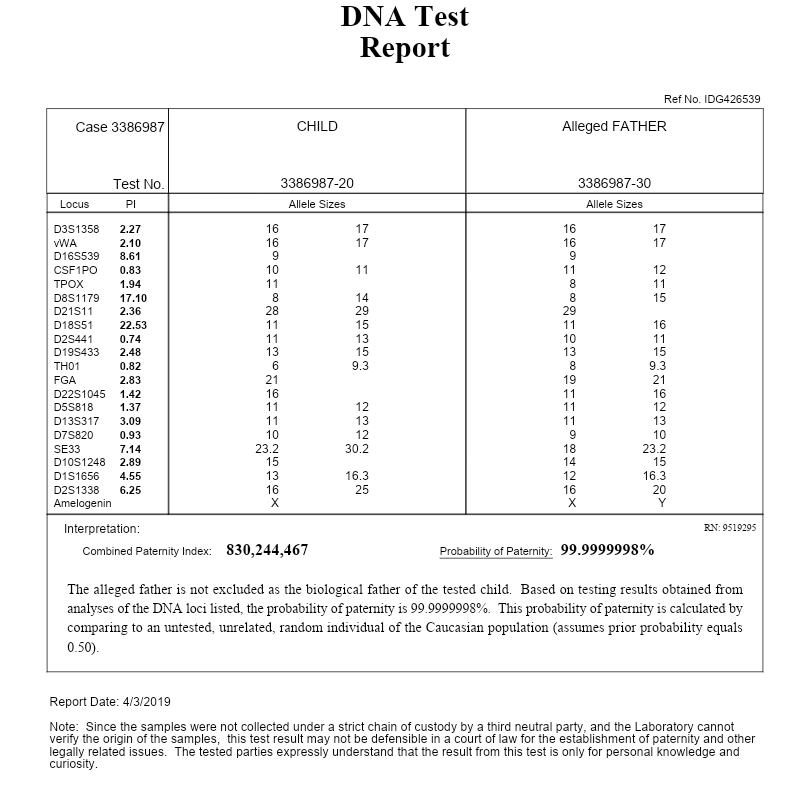Non-Invasive Prenatal Testing - Prenatal Screening Ontario

6 Easy Facts About Gender DNA Testing - BabyFlix Ultrasound Described
If you're pregnant and have concerns about the paternity of your growing baby, you may be questioning your alternatives. Do you have to suffer your whole pregnancy prior to you can determine the daddy of your infant? While a postpartum paternity test is an option, there are likewise tests that can be carried out while you're still pregnant.

DNA Gender Test - Miracle Beginnings
Technological developments suggest there's little risk to mommy or infant. If developing paternity is something you need to do, here's what you must understand about taking a paternity test during your pregnancy. A paternity test identifies a biological relationship between a baby and the father. It's essential for legal, medical, and psychological factors.


Sneak Peek DNA Gender Reveal at Jubilee Birth Center
When the kind is finished, couples have a designated quantity of time to ask for a DNA paternity test for modifications to the form. This type is submitted with the Bureau of Essential Statistics as a legally binding document. Paternity tests can be performed throughout or after a pregnancy. Postnatal tests, or those done after an infant is born, can be finished through an umbilical cable collection after shipment.

SneakPeek® Gender Prediction DNA Test - Early Pregnancy Boy or Girl Gender Reveal Home Kit - Know
Everything about Genetic Screening and Testing During Pregnancy
Waiting to establish paternity till shipment, while ensuring precise outcomes, might be challenging for you and the supposed dad. There are numerous paternity tests that can be carried out throughout pregnancy. Noninvasive prenatal paternity (NIPP)This noninvasive test is the most precise way to establish paternity during pregnancy. It includes taking a blood sample from the supposed daddy and the mom to carry out a fetal cell analysis.
< Keep Checking Back Here ="p__4">The result is more than 99 percent precise. The test can also be carried out after the 8th week of pregnancy. Amniocentesis, Between weeks 14 and 20 of your pregnancy, an amniocentesis test may be carried out. Normally, this intrusive diagnostic test is utilized to detect neural tube flaws, chromosome irregularities, and genetic disorders.
The DNA gathered will be compared to a DNA sample from the potential father. Results are 99 percent accurate for developing paternity. Amniocentesis carries a small threat of miscarriage, which can be triggered by premature labor, your water breaking, or infection. Negative effects of this procedure can include: vaginal bleedingcrampingthe dripping of amniotic fluidirritation around the injection site, You'll need your physician's authorization to have actually an amniocentesis carried out solely for the function of paternity screening.
